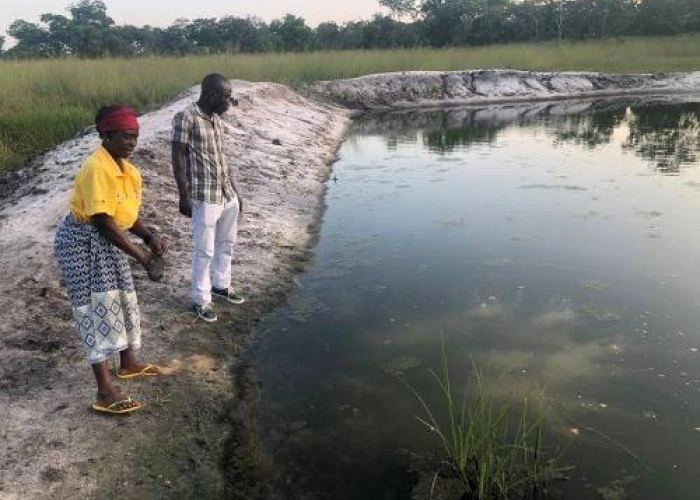ACCF Secretariat - climate resilient agriculture project

Representatives from the ACCF Secretariat conducted a supervision mission to Mozambique from May 9 to 13 2022, for the project titled “Syntropic agriculture as a strategy to foster resilience, climate adaptation and recovery of vulnerable communities living in degraded marine and coastal ecosystems in Zambezia”. The project is implemented by ICEI, an Italian NGO in partnership with ORAM, a Mozambican NGO.
The team from the ACCF was composed of the Fund Coordinator, Rita Effah, and the Program Officer, Emile Kouakou.
The mission was launched to discuss the project implementation and to ascertain the immediate impacts on the target communities and beneficiaries. Also, the mission documented lessons learned on best practices to inform future projects of the ACCF.
Effah and Kouakou met with key stakeholders and visited project beneficiaries in Maneia, Mocuna, and Gurai villages, which represented three out of the ten project communities in the Mocubela district. The field visits revealed that for the 104 family/individual plots established by the project, demonstrations about agroforestry methodologies (i.e., planting food crops intermixed with tree crops and timber trees) carried out on beneficiaries’ farmlands that are between 500m2 to 1000m2 will encourage the adoption of these practices to protect both the land/environment and the livelihoods of communities by sustaining food production all year round.
Madam Fernanda Ernesto, a 45-year-old mother of eight children and a beneficiary of the project commented on its relevance: “I have learned good agricultural practices which were unknown to me before. Now, I own a farm with beans, banana, pineapple, maize, cassava (and) together and I am teaching what I have learned to my children. I hope to replicate what I have learned in my other farmlands”.
In addition, the team visited three out of the ten fishponds established by the project. Through discussions with the three women beneficiaries and ICEI, it was revealed that the fishponds became operational in April 2022, and in about six months, the fishes would be matured for both consumption and or selling to generate income for the fish farmers.
The main observations from the field visits and discussions with beneficiaries revealed that the project had achieved some satisfactory short-term results. Therefore, it was possible in the long term, for more impacts to be realized, including via the further replication of apiaries for honey production and processing for value addition; adoption of agroforestry practices on other farmlands; and identifying economic activities for the 10 Natural Resources Management Committees to generate income to execute their activities of managing natural resources in their communities. The team observed that the project had a strong gender equality focus with more women owning farms and adopting agroforestry practices and fish farming, hence supporting their families through increased food production and income generation.